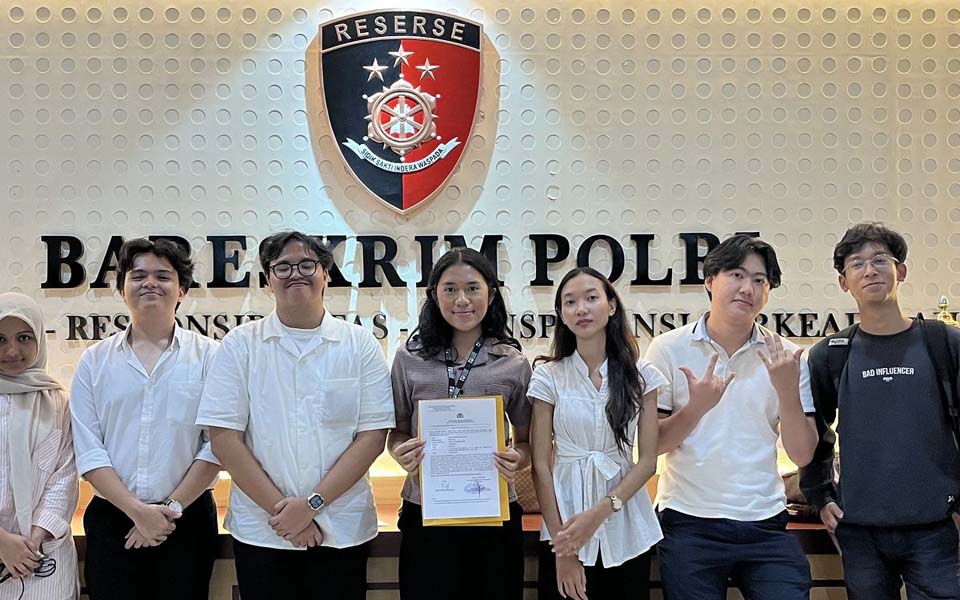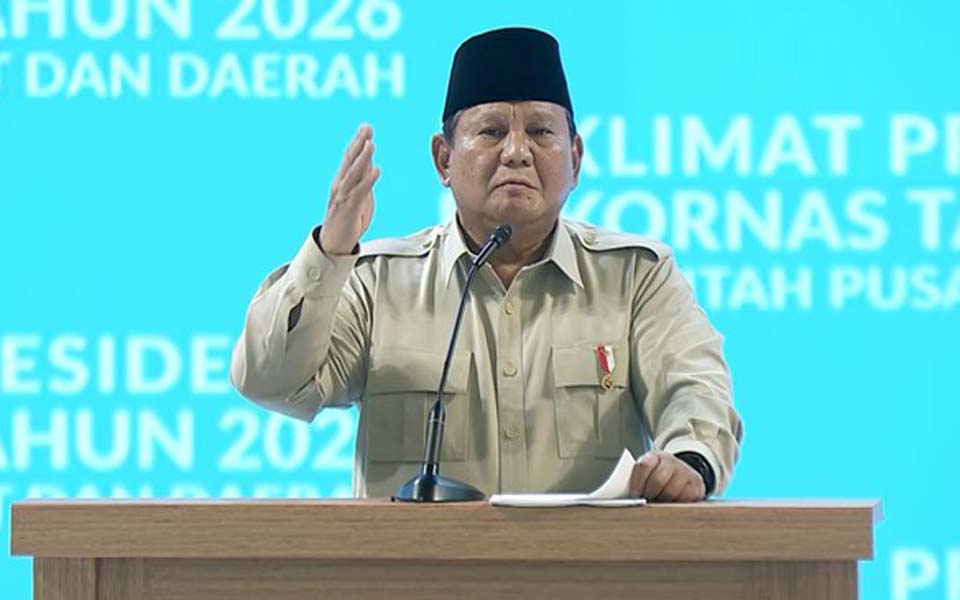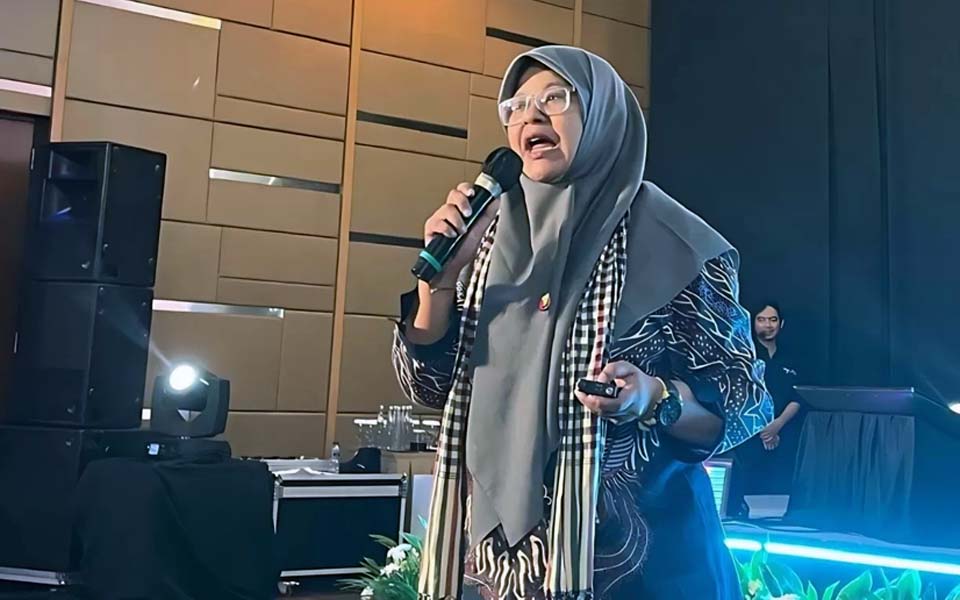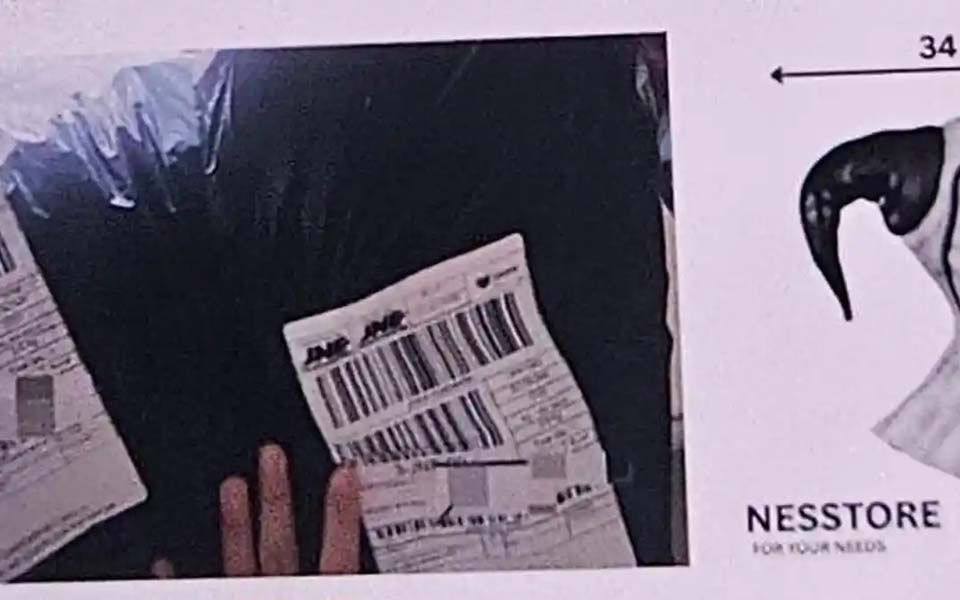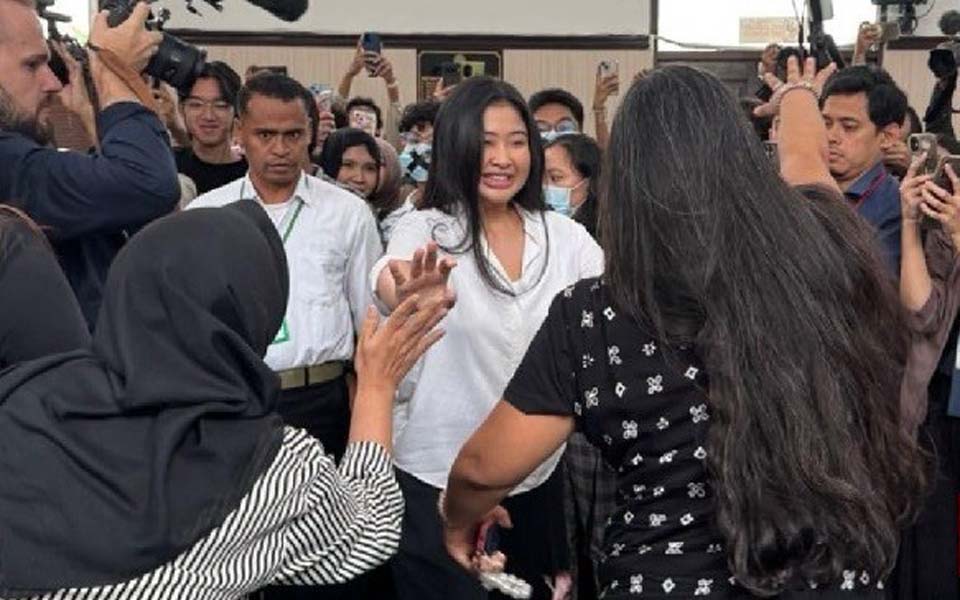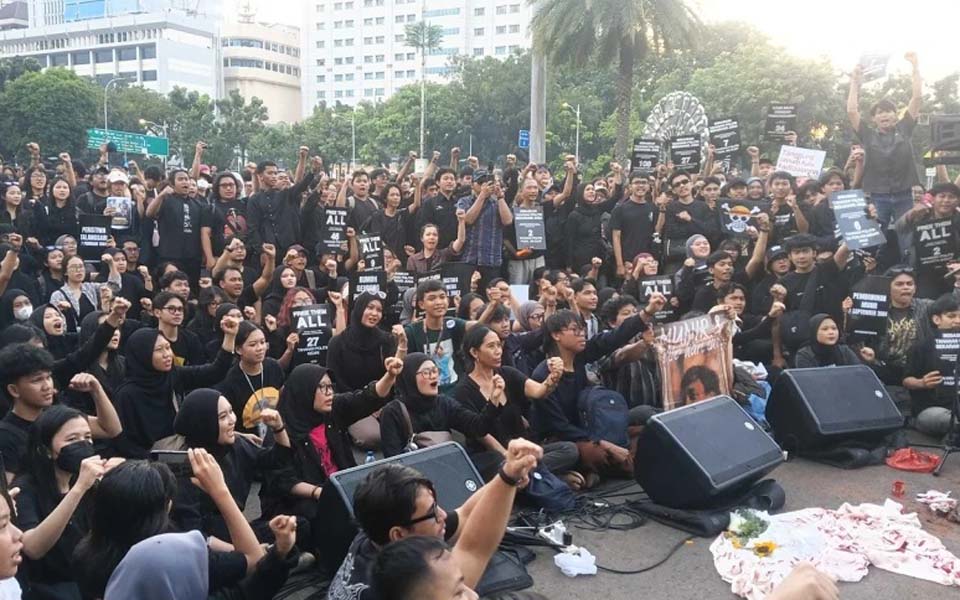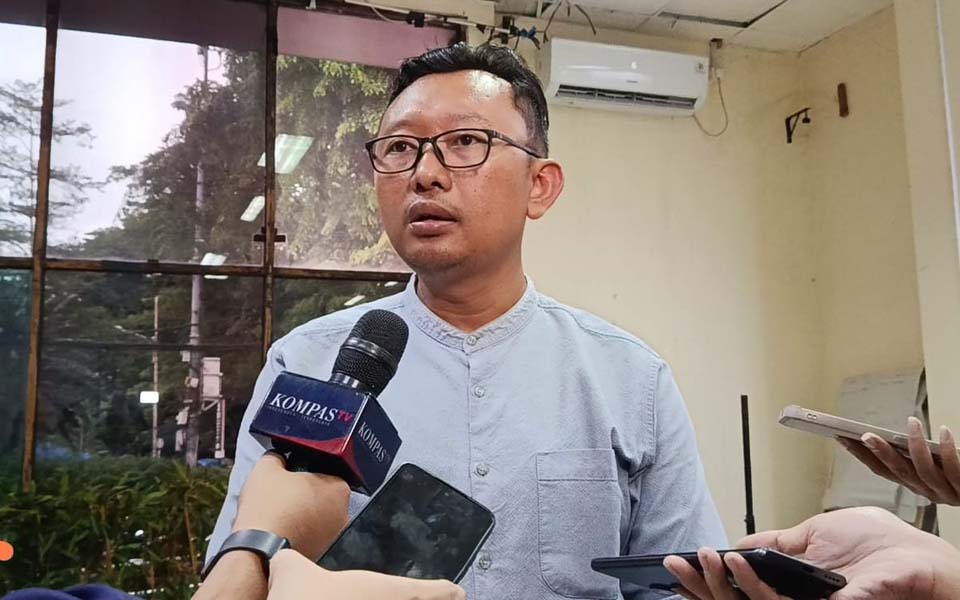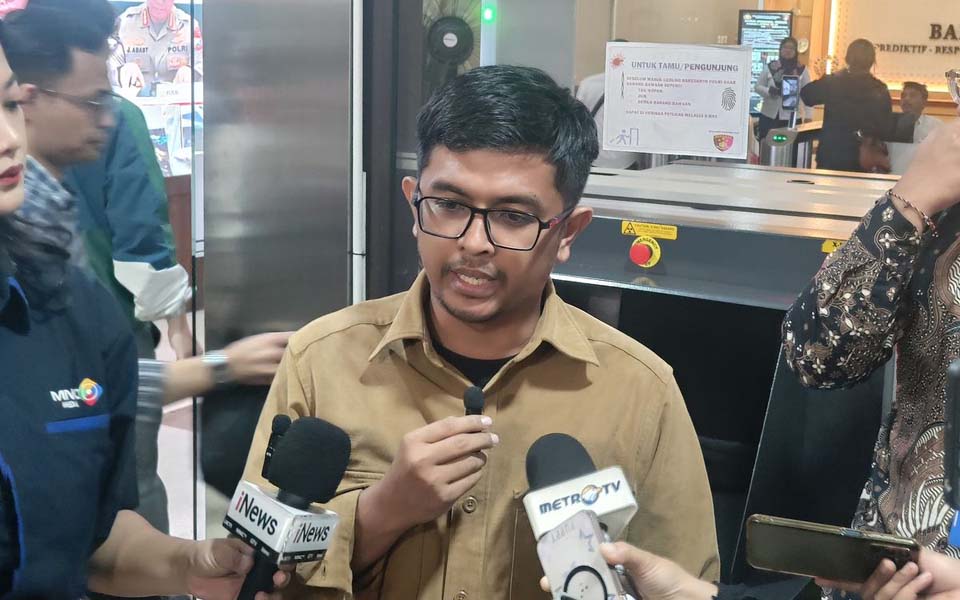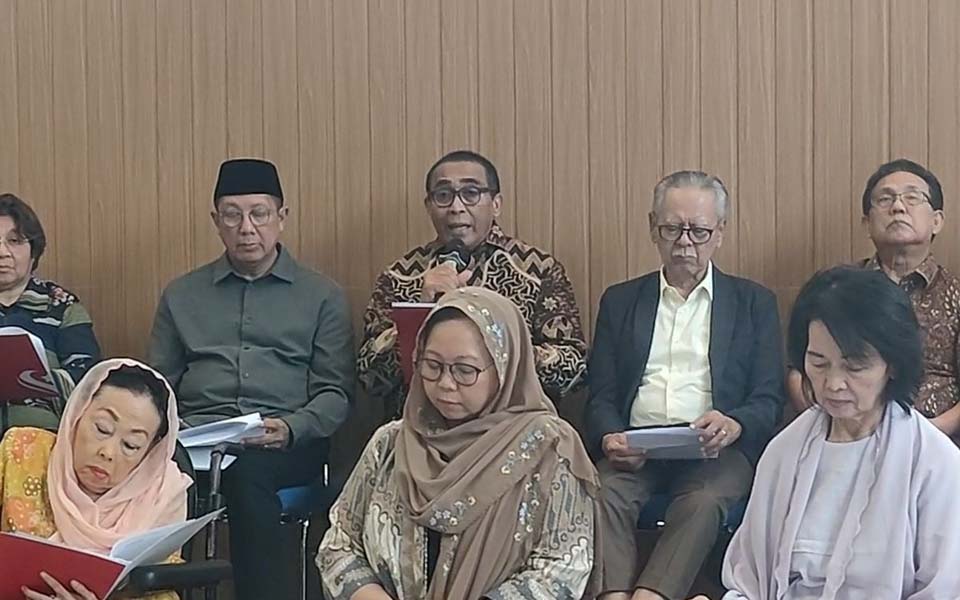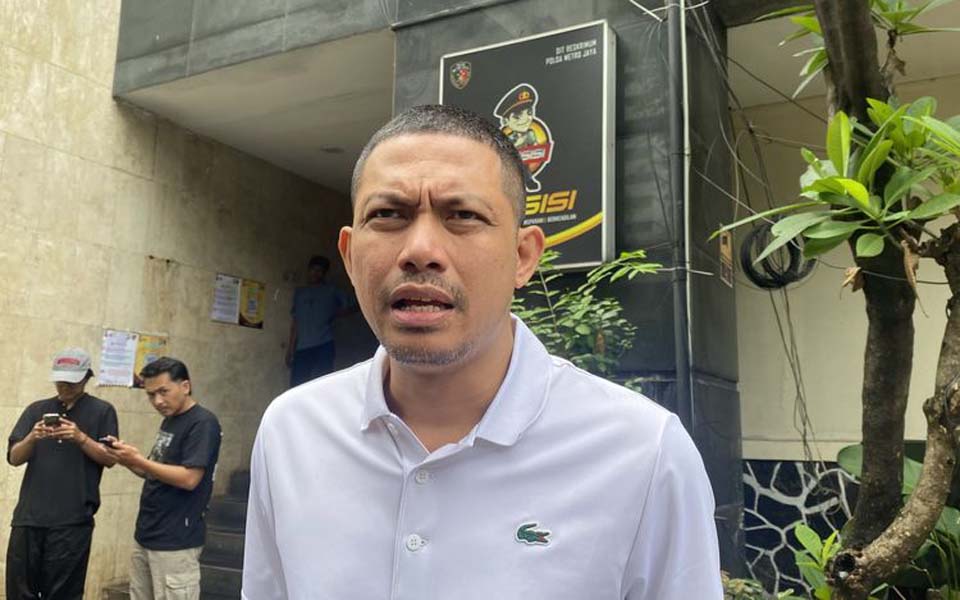Jakarta – Civil society organisations active in the field of humanitarianism, the law and human rights have criticised the use of criminalisation as a method to silence government critics and activists.
Indonesian Legal Aid Foundation (YLBHI) Advocacy and Networking Division Deputy Chairperson Arif Maulana suspects that the criminalisation of activists by certain parties is a modus operandi to repress, exploit and violate rights in the name of development, investment and other matters related to strategic projects.
"Criminalisation is actually a modus operandi by the authorities, businesspeople, the oligarchs so we do not fight for our rights and are silent", Maulana said in a discussion titled Strengthening Civil Society in Confronting the Authorities: A Portrait of Silencing Criticism and the Practice of Criminalisation in Indonesia on Wednesday August 2.
He also highlighted several examples of criminalisation of activists and government critics, one of which involves former Commission for Missing Persons and Victims of Violence (Kontras) coordinator Fatia Maulidiyanti and Lokataru Foundation Executive Director Haris Azhar in a case of defamation brought against them by Coordinating Minister for Maritime Affairs and Investment Luhut Binsar Pandjaitan.
He then cited the case that has ensnared journalist Dandhy Laksono and activist and musician Ananda Badudu after they criticised the human rights situation in Papua and assisted a student action opposing revisions to the Corruption Eradication Commission (KPK) Law and the Draft Criminal Code.
"This criminalisation occurs when communities are fighting for their rights. There are serious problems there", he said.
He also noted several articles that are often used to criminalise people including Articles 14 and 15 of Law Number 1/1946 on Criminal Law Regulations.
"These articles are related to fake news and incomplete news. The threat is very frighttenig, it can be up to 10 years [in prison]", he said.
He then highlighted Articles 310 and 311 of the Criminal Code (KUHP) on reporting defamation and a "zombie" article that had not previously been used but was successfully applied to indict a person, namely KUHP Article 207.
"Article 207 of the KUHP talks about insulting the president which is now a complaint offense. Most recently there was a former military officer Ruslan Buton who asked President Jokowi [Joko Widodo] to resign because he was considered to be violating and ignoring the constitution. However, he was actually criminalised and imprisoned, said Maulana.
Inadequate protection
Constitutional law expert Zainal Arifin Mochtar believes that the existing protections for government critics and public advocacy workers in Indonesia are inadequate.
He said this because even people who tend to be at the political centre, namely in Jakarta, still have the potential to be ensnared by the law or criminalised.
"In the centre, Jakarta, in Java, protection is still inadequate. Never mind in the regions", said Mochtar during the discussion.
He highlighted the case that has recently ensnared government critic Rocky Gerung. According to Mochtar, Gerung received public sympathy because of his public prominence.
Mochtar also highlighted the defamation case against Azhar and Maulidiyanti. He believes that they are fortunate because they are in Jakarta so they can speak out and be heard and are important figures.
"But what about those in the regions who have no protection whatsoever and are not public figures who are considered important", he said.
According to Mochtar, the problem of the lack of protection for government critics and public activists is not located in the law, but rather at the level of the implementation of the law itself.
"It's at the level of implementation, so it cannot provide adequate protection for public advocacy work", said Mochtar.
Meanwhile, constitutional law expert Denny Indrayana said all of them hope for improvements, including in the way the authorities – the government as well as the parliament – and the people deal with criticism.
According to Indrayana, Indonesia must have leaders who can put up with criticism and accept being reproached as part of politics. "And consider that criticism as a medicine from those who are dissatisfied with their work", he said at the same discussion.
Indrayana said that Indonesia's leaders should not see criticism as a criminal act so they criminalise or imprison activists.
In relation to a recent defamation report against Gerung, President Widodo declined to comment on one of his volunteer support groups who reported Gerung to the police for allegedly insulting him. Widodo claimed he would rather just get on with his work as president.
"It's just a minor issue. I'll just [keep on] working", said Widodo at Senayan Park in Jakarta on Wednesday. (psr/kid)
[Translated by James Balowski. The original title of the article was "Ramai Aktivis Soroti Dugaan Kriminalisasi Jadi Modus Pembungkam Kritik".]






